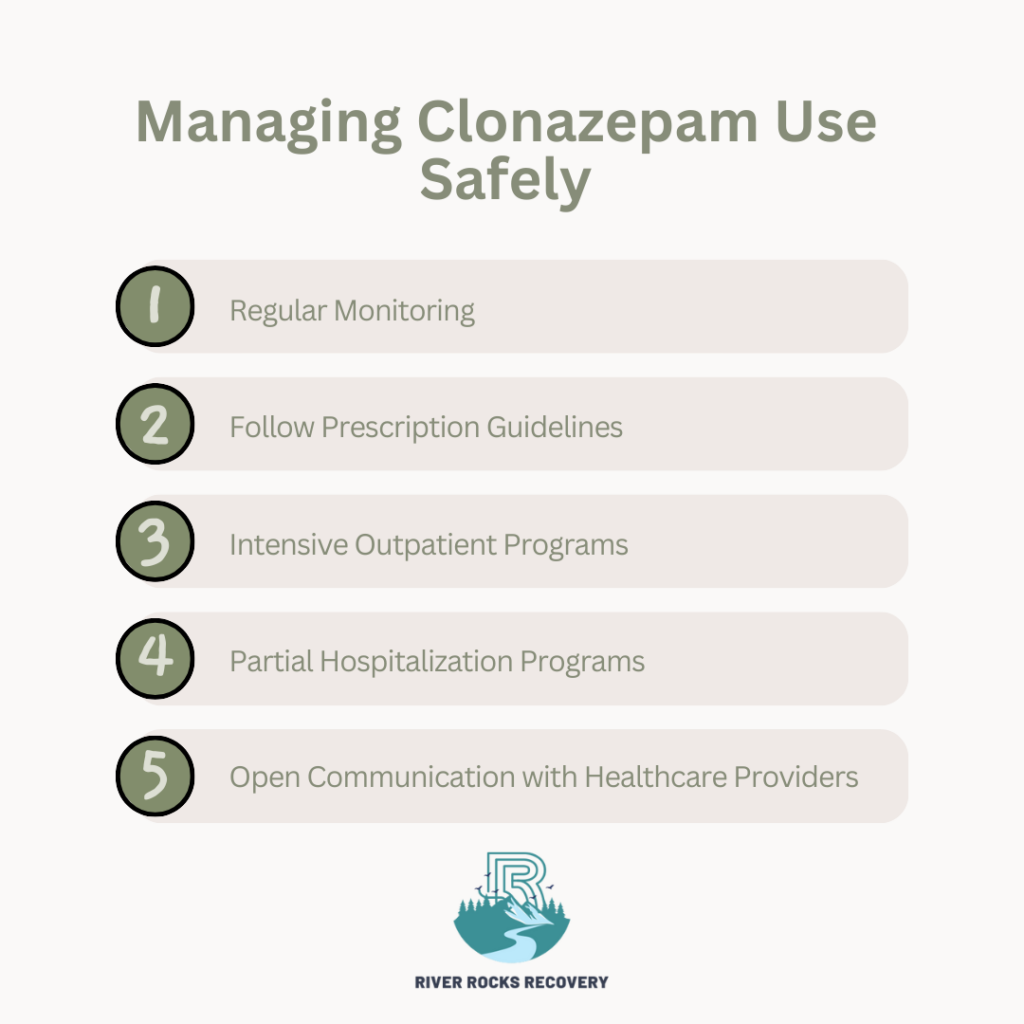Clonazepam is a widely used medicine to treat anxiety disorders, seizures, and panic attacks. Nowadays a number of patients are using it to live stress-free. But, as a regular user, it is critical to understand its effects on the body, particularly on heart rate.
So, in this article, we will understand the relationship between Clonazepam and heart rate, including the potential side effects, risks, and things you should know if you are taking this medication. Without wasting seconds, let’s jump in!
What is Clonazepam?
Clonazepam is a central nervous system (CNS) depressant that works by enhancing the effects of gamma-aminobutyric acid (GABA), a neurotransmitter that inhibits brain activity. By increasing GABA activity, clonazepam helps calm the brain, reducing symptoms of anxiety and preventing seizures. This calming effect can lead to various physiological responses in the body, including changes in heart rate.
How Does Clonazepam Work?
Before understanding the effects, it is critical to learn how Clonazepam works on the body. When you consume clonazepam to relax anxiety, it immediately works on nerve cells to reduce abnormal electrical activity in the brain. Experts surmise that it acts by tightly binding to the GABA-benzodiazepine receptor, which increases the affinity for GABA, a neurotransmitter that stops impulses between brain cells.
Nevertheless, a low level of GABA has been connected to pain, mood disorders, anxiety, and seizure disorders. However, it affects heart rate and causes a serious threat to the patients.
How Does Clonazepam Affect the Heart Rate?
Clonazepam works by increasing the neurotransmitter gamma-aminobutyric acid (GABA), which helps control how the body reacts to stress and anxiety. This may result in feelings of peace and relaxation, but it may also have an impact on heart rate. However, depending on the individual’s health, dosage, and how the body responds to the medication can vary the effects. According to studies, the most common effects are decreased and increased heart rate which can lead to dizziness, fainting, and anxiety.
- Initial Sedative Effects: When clonazepam is first taken, individuals may experience a decrease in heart rate. This is largely due to its sedative properties, which can lead to relaxation and a sense of calm. The body’s stress response is dampened, which may translate into a lower heart rate.
- Changes in Heart Rate During Use: Over time, the body may adapt to the medication. Some individuals may experience fluctuations in heart rate due to factors such as tolerance development, dosage changes, or interactions with other medications. In particular, high doses or long-term use may lead to a more pronounced impact on heart rate.
- Withdrawal Effects: If clonazepam is discontinued abruptly, withdrawal symptoms may occur, including anxiety, agitation, and an increased heart rate. This rebound effect can be particularly dangerous for individuals with underlying heart conditions, as it may trigger cardiovascular complications.
- Potential for Increased Heart Rate: While clonazepam is often associated with decreased heart rate, some individuals may experience an increase in heart rate. This can occur due to various reasons, such as:
- Interactions with Other Medications: Combining clonazepam with stimulants or other medications that impact the cardiovascular system can lead to increased heart rate.
- Stress or Anxiety: In certain situations, anxiety or panic attacks can lead to a paradoxical increase in heart rate, even while taking clonazepam.
Health Risks Associated with Clonazepam
Understanding the risks associated with clonazepam is vital for anyone considering or currently using this medication, especially those with pre-existing health conditions.
1. Cardiovascular Health
Individuals with existing heart conditions, such as arrhythmias or hypertension, should approach clonazepam with caution. Changes in heart rate can exacerbate these conditions, potentially leading to serious complications. The sedative effects of clonazepam can mask symptoms of underlying issues, making it essential to have regular check-ups and monitoring by a healthcare provider.
2. Interaction with Other Substances
Clonazepam can interact with various substances, including alcohol, opioids, and other medications. These interactions can heighten the risk of adverse cardiovascular effects, including changes in heart rate. For example:
- Alcohol: Alcohol can amplify the sedative effects of clonazepam, leading to profound respiratory depression, excessive drowsiness, and an increased risk of overdose. This combination can also cause fluctuations in heart rate, leading to potential complications.
- Stimulants: Combining clonazepam with stimulants (e.g., ADHD medications) can create a dangerous imbalance, leading to increased heart rate and potential cardiovascular stress.
3. Withdrawal Effects
Discontinuing clonazepam suddenly can lead to withdrawal symptoms, including anxiety, insomnia, tremors, and an increased heart rate. For those who have been on the medication for an extended period, this can be particularly uncomfortable and dangerous. A gradual tapering approach is often recommended to minimize withdrawal effects and stabilize heart rate.
Things You Should Know Before Taking Clonazepam
Now that you have understood the effects of Clonazepam on the heart, it’s time to consider the important things you should keep in mind before taking Clonazepam as your regular health supplement.
- Clonazepam should only be used under close medical supervision if you have a history of heart disease, arrhythmias, or other cardiovascular problems. It is crucial to regularly evaluate heart rate and cardiovascular health in general.
- Clonazepam’s sedative effects can cause dramatic heart rate shifts and an increased risk of falls or fainting, which are more likely to affect the elderly.
- People with sleep apnea should use clonazepam with caution as it can worsen the disease and indirectly alter heart rate. This is because the medicine can further impair respiratory function.

Managing Clonazepam Use Safely
For those prescribed clonazepam, it is essential to manage its use safely and effectively. Here are some strategies:
1. Regular Monitoring
Monitoring heart rate and overall health is crucial, especially for individuals with pre-existing cardiovascular conditions. Regular check-ups with healthcare providers can help identify any adverse effects early on. Keep track of symptoms, noting any changes in heart rate, blood pressure, or overall well-being.
2. Open Communication with Healthcare Providers
It’s essential to maintain open communication with your healthcare provider regarding any concerns about clonazepam’s effects on your heart rate or overall health. Discuss your complete medical history, including any cardiovascular issues, and inform your doctor about all medications and substances you are taking.
3. Follow Prescription Guidelines
Always take clonazepam as prescribed. Do not adjust the dosage without consulting your healthcare provider, as doing so may lead to unwanted side effects or withdrawal symptoms. If side effects occur, your doctor may need to adjust your treatment plan.
4. Consider Alternative Treatments
If clonazepam’s side effects are concerning or if you are at risk for cardiovascular issues, discuss alternative treatment options with your healthcare provider. Various approaches to anxiety and seizure disorders exist, including non-benzodiazepine medications and therapy.
- Cognitive-Behavioral Therapy (CBT): Cognitive-Behavioral Therapy can help individuals manage anxiety without relying solely on medication. Many Addiction Treatment Programs integrate CBT as part of their holistic approach.
- Intensive Outpatient Programs (IOP): For those struggling with substance use, Intensive Outpatient Programs can provide support and structure while allowing individuals to maintain their daily responsibilities.
- Partial Hospitalization Programs (PHP): Partial Hospitalization Programs offer more intensive care while still allowing for some independence, making them an ideal option for those requiring additional support.
Are you Clonazepam addicted? Call Rivers Rock Recovery!
Clonazepam is a powerful medicine that can have a wide range of effects, including changes in heart rate. But if you feel you are becoming addicted to it or experiencing anxiety without taking its dose call Rivers Rock Recovery! We provide several addiction therapy programs, including cognitive behavioral therapy and dialectical therapy. Our experienced team will help you get rid of addiction and live your life happily and healthily. Contact us today and find the best addiction treatment option for you.
Conclusion
Clonazepam can be an effective treatment for anxiety and related disorders, but understanding its effects on heart rate and the associated risks is essential. Individuals with pre-existing cardiovascular conditions should approach this medication with caution and work closely with their healthcare provider to ensure safe use.
If you or someone you know is struggling with substance use or mental health challenges, seeking help from an Addiction Treatment Center in Ohio can provide the support needed. At River Rocks Recovery, we offer comprehensive Addiction Therapy Programs, Alcohol Rehab Treatment, Drug Rehab Treatment, and specialized Opiate Rehab Treatment. Your health and safety should always come first, and there are resources available to support you on your path to recovery. Call River Rocks Recovery at (888) 905-6281 today to learn more about treatment options and how to support your loved one through the recovery process.
FAQ on Clonazepam and Heart Rate
What is clonazepam used for?
Clonazepam is primarily prescribed for anxiety disorders, panic attacks, and seizure disorders. It works by enhancing the effects of GABA, a neurotransmitter that helps calm the brain.
How does clonazepam affect heart rate?
Clonazepam can initially decrease heart rate due to its sedative effects. However, in some cases, it may lead to an increased heart rate, especially during withdrawal or when combined with other substances.
What are the risks of taking clonazepam?
Potential risks include changes in heart rate, interactions with alcohol or stimulants, and withdrawal symptoms when discontinuing the medication. Individuals with pre-existing heart conditions should use clonazepam cautiously.
What should I do if I experience changes in heart rate while taking clonazepam?
If you notice significant changes in your heart rate or experience any concerning symptoms, contact healthcare provider immediately. Regular monitoring is essential for those with pre-existing conditions.
Are there alternative treatments to clonazepam?
Yes, alternative treatments for anxiety and seizure disorders include non-benzodiazepine medications and therapy, such as Cognitive-Behavioral Therapy (CBT). Programs like Intensive Outpatient Programs (IOP) and Partial Hospitalization Programs (PHP) can also provide support.
Where can I find help for substance use or mental health challenges?
If you or someone you know is struggling, consider reaching out to River Rocks Recovery, which offers comprehensive addiction treatment programs, including Alcohol Rehab Treatment, Drug Rehab Treatment, and Opiate Rehab Treatment.




























